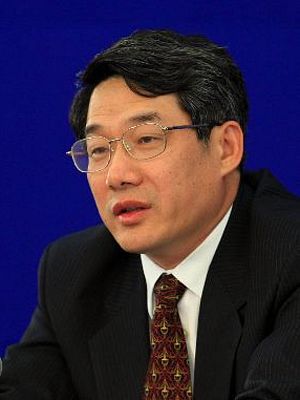On Wednesday, a Chinese court sentenced Liu Tienan, formerly the deputy head of the National Development and Reform Commission, to life in prison for taking almost $5.8 million in bribes, The New York Times reports. While China’s anti-corruption campaign has netted bigger names (most notably Zhou Yongkang and Xu Caihou), Liu is one of the highest-ranking officials to be sentenced to date. As the Times notes, Liu’s sentence sends a strong signal that the anti-corruption campaign is at least partly aimed at eliminating roadblocks to reform. The NDRC bureaucracy “is believed to be a major obstacle” to pushing through top leadership’s ambitious economic reform agenda. Chinese President Xi Jinping has also worked to sideline the NDRC by establishing a new “leading group” for overall reform that operates under his own personal control.
Meanwhile, Reuters reports that one of China’s “longest-serving political prisoners” has been released after being imprisoned nearly continuously since 1996. Hada, an ethnic Mongol from Inner Mongolia, was sentenced to 15 years in prison for separatism and supporting the Southern Mongolia Democratic Alliance. That sentence ended in December 2010, but until this week Hada was kept in an illegal detention center. Hada’s uncle told Reuters that his nephew had been released from detention on Tuesday and was “not in good health.”
In other news, Jeff Goodell of Rolling Stone outlines the negotiations that led up to the U.S.-China climate change announcements at last month’s APEC summit. Talks began in February, with both sides interested in (but not overly optimistic about) reaching a deal. Both the U.S. and China were aware that, without their cooperation, a deal at the 2015 climate change conference in Paris was a non-starter. Still, little progress was made until Obama decided to make climate change a priority – and suggested to Xi that such a deal could be the highlight of their bilateral summit in Beijing. Even then, Goodell writes, the deal wasn’t finalized until the day before the summit.
Over at the Lowy Institute, Linda Jakobson argues that China’s maritime approach is largely being “shaped by a diverse set of actors pushing their own agendas.” That makes China’s behavior “unpredictable,” Jakobson writes. She argues that China’s moves in disputed regions “are not part of a grand strategy to coerce China’s neighbors in a tailored manner” but are rather the result of in-fighting and lack of coordination among China’s various maritime agencies.
Finally, Julian Ku, writing for The National Interest, argues that the Philippines’ arbitration case against China’s South China Sea claims “is doomed to fail.” Ku writes, “Although many of China’s actions in the South China Sea are provocative and quite possibly illegal, the Philippines’ claim faces significant legal obstacles.” Moreover, even in the event of a favorable ruling, the Philippines’ hope that China will damage its reputation by ignoring the tribunal “is largely wishful thinking.” Far from a positive outcome, Ku argues, the Philippine case will likely only discourage China for pursuing voluntary arbitration over maritime issues in the future.

































